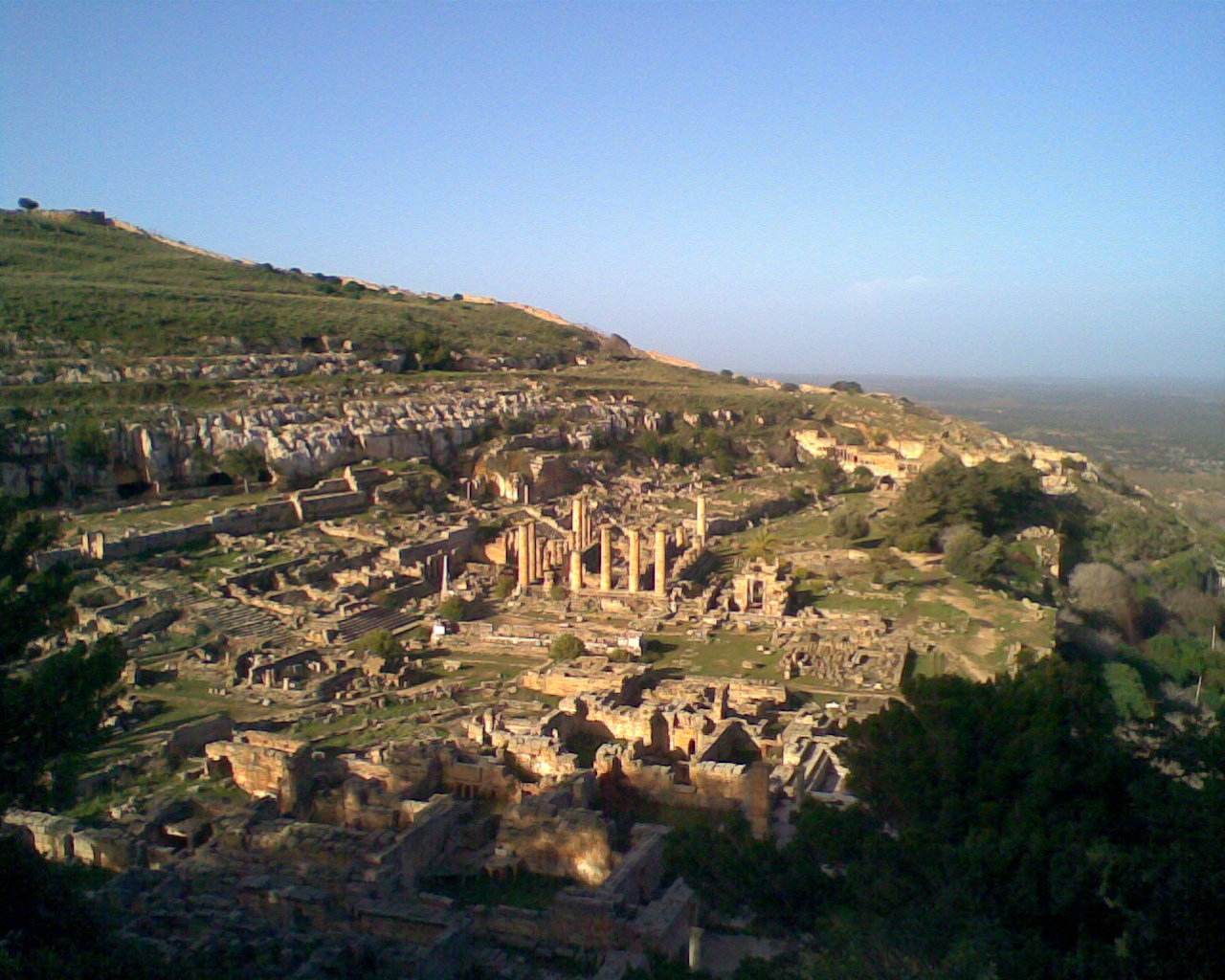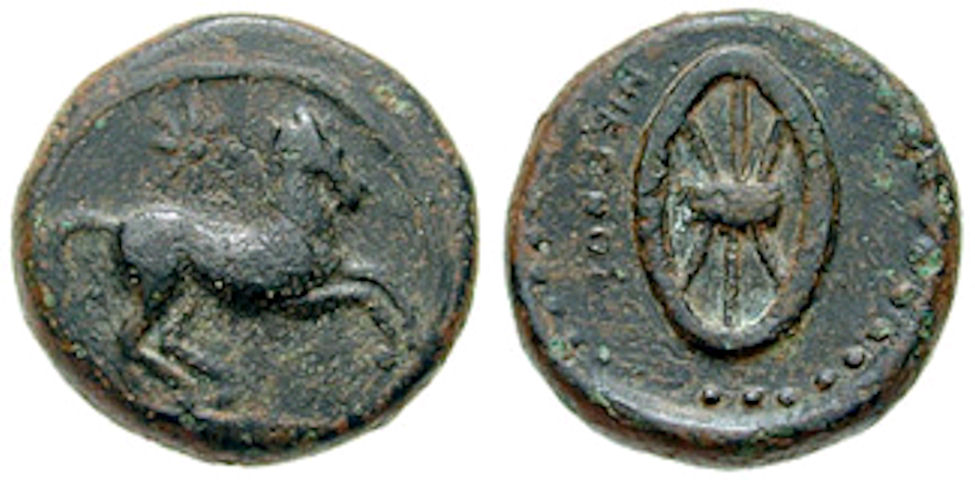Hegesias of Cyrene on:
[Wikipedia]
[Google]
[Amazon]
 Hegesias ( el, Ἡγησίας; fl. 290 BC) of Cyrene was a Cyrenaic philosopher. He argued that eudaimonia (happiness) is impossible to achieve, and that the goal of life should be the avoidance of pain and sorrow. Conventional values such as wealth, poverty, freedom, and slavery are all indifferent and produce no more pleasure than pain.
Hegesias ( el, Ἡγησίας; fl. 290 BC) of Cyrene was a Cyrenaic philosopher. He argued that eudaimonia (happiness) is impossible to achieve, and that the goal of life should be the avoidance of pain and sorrow. Conventional values such as wealth, poverty, freedom, and slavery are all indifferent and produce no more pleasure than pain.

 The philosophy of the Cyrenaics around the time of Hegesias of Cyrene evolved in a way that had similarities with Pyrrhonism, Epicureanism, and also
The philosophy of the Cyrenaics around the time of Hegesias of Cyrene evolved in a way that had similarities with Pyrrhonism, Epicureanism, and also
Cicero's ''Tusculum Disputations''
which talks about Hegesias's ''Death by Starvation''
The Most Depressing Book Ever Written: Death by Starvation by Hegesias of Kyrene
with summary, background, and discussion of purpose {{DEFAULTSORT:Hegesias Of Cyrene 3rd-century BC philosophers Ancient Greek ethicists Cyrenaic philosophers Indo-Greek religions and philosophy Buddhism in the ancient Mediterranean Religion in Libya
 Hegesias ( el, Ἡγησίας; fl. 290 BC) of Cyrene was a Cyrenaic philosopher. He argued that eudaimonia (happiness) is impossible to achieve, and that the goal of life should be the avoidance of pain and sorrow. Conventional values such as wealth, poverty, freedom, and slavery are all indifferent and produce no more pleasure than pain.
Hegesias ( el, Ἡγησίας; fl. 290 BC) of Cyrene was a Cyrenaic philosopher. He argued that eudaimonia (happiness) is impossible to achieve, and that the goal of life should be the avoidance of pain and sorrow. Conventional values such as wealth, poverty, freedom, and slavery are all indifferent and produce no more pleasure than pain. Cicero
Marcus Tullius Cicero ( ; ; 3 January 106 BC – 7 December 43 BC) was a Roman statesman, lawyer, scholar, philosopher, and academic skeptic, who tried to uphold optimate principles during the political crises that led to the esta ...
claims that Hegesias wrote a book called ἀποκαρτερῶν (''Death by Starvation''), which persuaded so many people that death is more desirable than life that Hegesias was banned from teaching in Alexandria
Alexandria ( or ; ar, ٱلْإِسْكَنْدَرِيَّةُ ; grc-gre, Αλεξάνδρεια, Alexándria) is the second largest city in Egypt, and the largest city on the Mediterranean coast. Founded in by Alexander the Great, Alexandri ...
. It has been thought by some that Hegesias was influenced by Buddhist
Buddhism ( , ), also known as Buddha Dharma and Dharmavinaya (), is an Indian religion or philosophical tradition based on teachings attributed to the Buddha. It originated in northern India as a -movement in the 5th century BCE, and ...
teachings.
Life
Diogenes Laërtius describes Hegesias as the pupil of Paraebates, who was a pupil of Epitimedes, who was a pupil of Antipater of Cyrene, who was a pupil of Aristippus (c. 435 – c. 360 BC). He was the fellow-student ofAnniceris
Anniceris ( grc-gre, Ἀννίκερις; fl. 300 BC) was a Cyrenaic philosopher. He argued that pleasure is achieved through individual acts of gratification which are sought for the pleasure that they produce, but he also laid great emphasis on t ...
, but he differed from Anniceris by presenting the system which Anniceris softened and improved in its most nihilistic form.
Philosophy
Hegesias followed Aristippus in considering pleasure as the goal of life; but, the view which he took of human life was more pessimistic. Because eudaimonia was unattainable, the sage's goal should be to become free from pain and sorrow. Since, too, every person is self-sufficient, all external goods were rejected as not being true sources of pleasure:Complete happiness cannot possibly exist; for that the body is full of many sensations, and that the mind sympathizes with the body, and is troubled when that is troubled, and also that fortune prevents many things which we cherished in anticipation; so that for all these reasons, perfect happiness eludes our grasp. Moreover, that both life and death are desirable. They also say that there is nothing naturally pleasant or unpleasant, but that owing to want, or rarity, or satiety, some people are pleased and some vexed; and that wealth and poverty have no influence at all on pleasure, for that rich people are not affected by pleasure in a different manner from poor people. In the same way they say that slavery and freedom are things indifferent, if measured by the standard of pleasure, and nobility and baseness of birth, and glory and infamy. They add that, for the foolish person it is expedient to live, but to the wise person it is a matter of indifference; and that the wise person will do everything for his own sake; for that he will not consider any one else of equal importance with himself; and he will see that if he were to obtain ever such great advantages from any one else, they would not be equal to what he could himself bestow.Hence the sage ought to regard nothing but himself; action is quite indifferent; and if action, so also is life, which, therefore, is in no way more desirable than death:
The wise person would not be so much absorbed in the pursuit of what is good, as in the attempt to avoid what is bad, considering the chief good to be living free from all trouble and pain: and that this end was attained best by those who looked upon the efficient causes of pleasure as indifferent.None of this, however, is as strong as the testimony of
Cicero
Marcus Tullius Cicero ( ; ; 3 January 106 BC – 7 December 43 BC) was a Roman statesman, lawyer, scholar, philosopher, and academic skeptic, who tried to uphold optimate principles during the political crises that led to the esta ...
, who claims that Hegesias wrote a book called ''Death by Starvation'' ( el, ἀποκαρτερῶν), in which a man who has resolved to starve himself is introduced as representing to his friends that death is actually more to be desired than life, and that the gloomy descriptions of human misery which this work contained were so overpowering that they inspired many people to kill themselves, in consequence of which the author received the surname of ''Death-persuader'' (Peisithanatos). The book was said to have been published at Alexandria
Alexandria ( or ; ar, ٱلْإِسْكَنْدَرِيَّةُ ; grc-gre, Αλεξάνδρεια, Alexándria) is the second largest city in Egypt, and the largest city on the Mediterranean coast. Founded in by Alexander the Great, Alexandri ...
, where he was, in consequence, forbidden to teach by king Ptolemy II Philadelphus (285–246 BC).
Indian connection

 The philosophy of the Cyrenaics around the time of Hegesias of Cyrene evolved in a way that had similarities with Pyrrhonism, Epicureanism, and also
The philosophy of the Cyrenaics around the time of Hegesias of Cyrene evolved in a way that had similarities with Pyrrhonism, Epicureanism, and also Buddhism
Buddhism ( , ), also known as Buddha Dharma and Dharmavinaya (), is an Indian religions, Indian religion or Indian philosophy#Buddhist philosophy, philosophical tradition based on Pre-sectarian Buddhism, teachings attributed to the Buddha. ...
.
The rulers of Cyrene around the time Hegesias flourished were Ophellas and then Magas
Magas (russian: Мага́с) is the capital town of the Republic of Ingushetia, Russia. It was founded in 1995 and replaced Nazran as the capital of the republic in 2002. Due to this distinction, Magas is the smallest capital of a federal subje ...
, as governors of the Ptolemaic king of Egypt
Egypt ( ar, مصر , ), officially the Arab Republic of Egypt, is a transcontinental country spanning the northeast corner of Africa and southwest corner of Asia via a land bridge formed by the Sinai Peninsula. It is bordered by the Medit ...
Ptolemy II Philadelphus, and from 276 BC Magas
Magas (russian: Мага́с) is the capital town of the Republic of Ingushetia, Russia. It was founded in 1995 and replaced Nazran as the capital of the republic in 2002. Due to this distinction, Magas is the smallest capital of a federal subje ...
as independent king. Both Ptolemy and Magas are claimed to have been recipients of Buddhist
Buddhism ( , ), also known as Buddha Dharma and Dharmavinaya (), is an Indian religion or philosophical tradition based on teachings attributed to the Buddha. It originated in northern India as a -movement in the 5th century BCE, and ...
missionaries from the Indian king Ashoka
Ashoka (, ; also ''Asoka''; 304 – 232 BCE), popularly known as Ashoka the Great, was the third emperor of the Maurya Empire of Indian subcontinent during to 232 BCE. His empire covered a large part of the Indian subcontinent, s ...
according to the latter's Edicts
An edict is a decree or announcement of a law, often associated with monarchism, but it can be under any official authority. Synonyms include "dictum" and "pronouncement".
''Edict'' derives from the Latin edictum.
Notable edicts
* Telepinu Pro ...
. Ashoka claimed in his rock edicts No13:
The philosophy of Hegesias displays striking similarities with the tenets of Buddhism
Buddhism ( , ), also known as Buddha Dharma and Dharmavinaya (), is an Indian religions, Indian religion or Indian philosophy#Buddhist philosophy, philosophical tradition based on Pre-sectarian Buddhism, teachings attributed to the Buddha. ...
, in particular the Four Noble Truths and the concept of Dukkha or "suffering". It is therefore sometimes thought that Hegesias may have been directly influenced by Buddhist teachings through contacts with the alleged missionaries sent to his rulers in the 3rd century BC.
See also
* Existential nihilism *Negative utilitarianism
Negative utilitarianism is a form of negative consequentialism that can be described as the view that people should minimize the total amount of aggregate suffering, or that they should minimize suffering and then, secondarily, maximize the tota ...
*Philosophical pessimism
Philosophical pessimism is a family of philosophical views that assign a negative value to life or existence. Philosophical pessimists commonly argue that the world contains an empirical prevalence of pains over pleasures, that existence is onto ...
* Ancient Greece–Ancient India relations
Notes
Citations
References
* * *External links
Cicero's ''Tusculum Disputations''
which talks about Hegesias's ''Death by Starvation''
The Most Depressing Book Ever Written: Death by Starvation by Hegesias of Kyrene
with summary, background, and discussion of purpose {{DEFAULTSORT:Hegesias Of Cyrene 3rd-century BC philosophers Ancient Greek ethicists Cyrenaic philosophers Indo-Greek religions and philosophy Buddhism in the ancient Mediterranean Religion in Libya